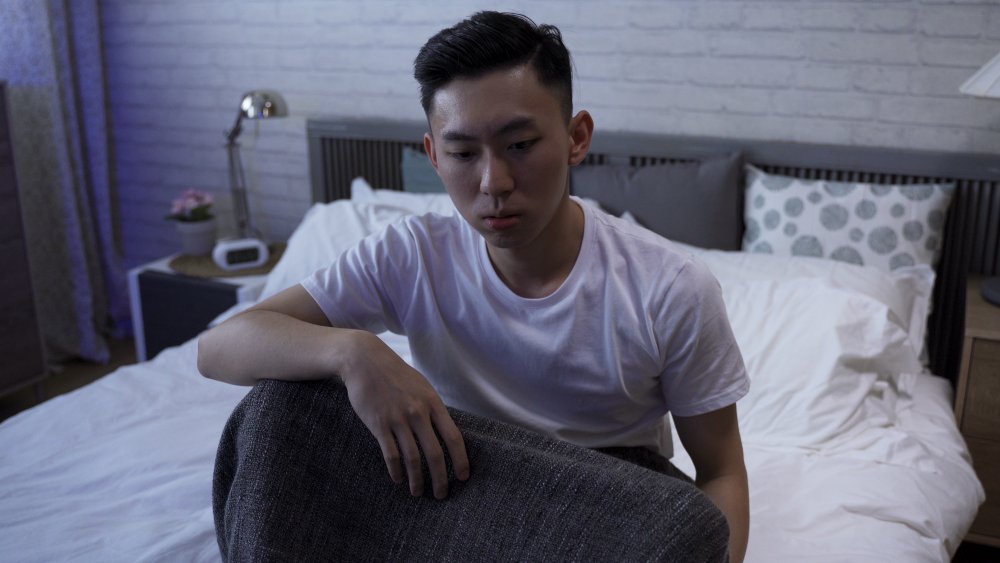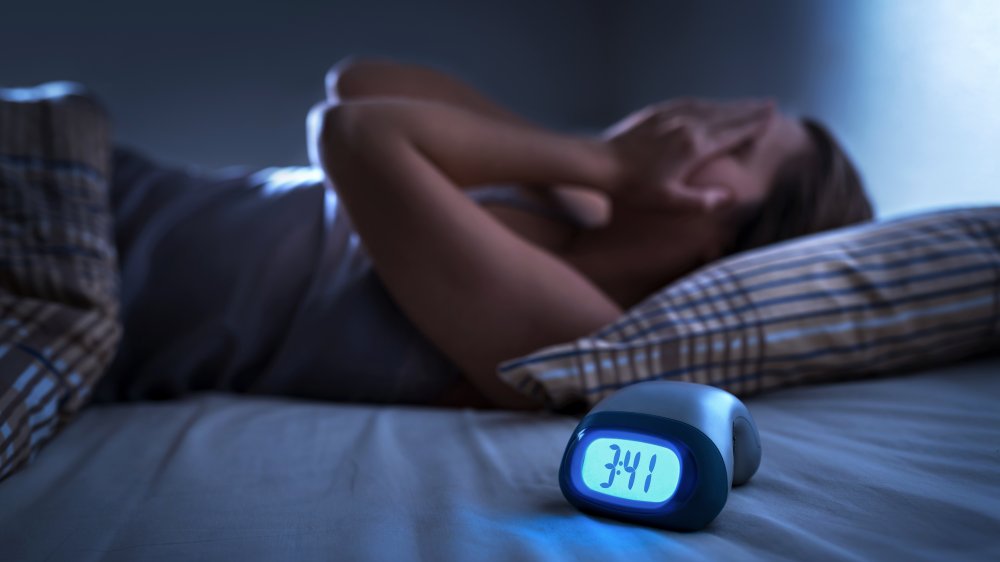Why Pessimists Aren't Getting Enough Sleep, According To New Study
"Well, someone woke up on the wrong side of the bed this morning!" We've all heard this before, or remarked it to a grumpy, cereal-bowl-slamming roommate, partner, or other cohabitant. As it turns out, there is an actual link between a sour disposition and lack of sleep — and it's not simply that a night of tossing and turning leads to some understandable crankiness the next day. In fact, a recent study from researchers at the Medical University of Vienna revealed that people who were pessimistic were more likely to suffer from chronic insomnia. On the flip side, the Austrian participants of this study who were optimistic were 70 percent less likely to have sleep problems.
While optimism has been linked to other healthy habits, like a healthy diet and regular exercise, this study is among the first to connect a glass-is-always-full disposition to better sleep (per MindBodyGreen). "Other studies have shown that optimists take more exercise, smoke less, and eat a healthier diet," stated the study's head researcher, Jakob Weitzer. "On top of that, they have better strategies for coping with problems and experience less stress in challenging situations. All these factors could contribute to better quality sleep."
Pessimists may have trouble sleeping because they are up all night worrying
So why do optimists sleep better than pessimists? "Optimists are more likely to engage in active problem-focused coping and to interpret stressful events in more positive ways, reducing worry and ruminative thoughts when they're falling asleep and throughout their sleep cycle," explained Rosalba Hernandez, a professor of social work at the University of Illinois, which conducted a study similar to the Austrian study last year, analyzing the link between pessimism and insomnia among 3,500 American participants (per Science Daily).
If you find yourself struggling to fall asleep because you're worried, there are techniques that will help you let go of anxiety so you can relax and ease your way into dreams. If it's little nagging things — remembering you need to go grocery shopping, or email your boss — keep a notepad and paper by your bed so you can jot these thoughts down. If you find yourself ruminating over serious problems, try a positive fantasy instead, suggested sleep expert Dr. Neil Stanley. "Imagine what you would do if you won the lottery, or where you would go if you suddenly got your own private jet," he said in an interview with Good Housekeeping. "The important thing is that the imagined situation has a narrative, which keeps your brain focused on something other than your worries."


